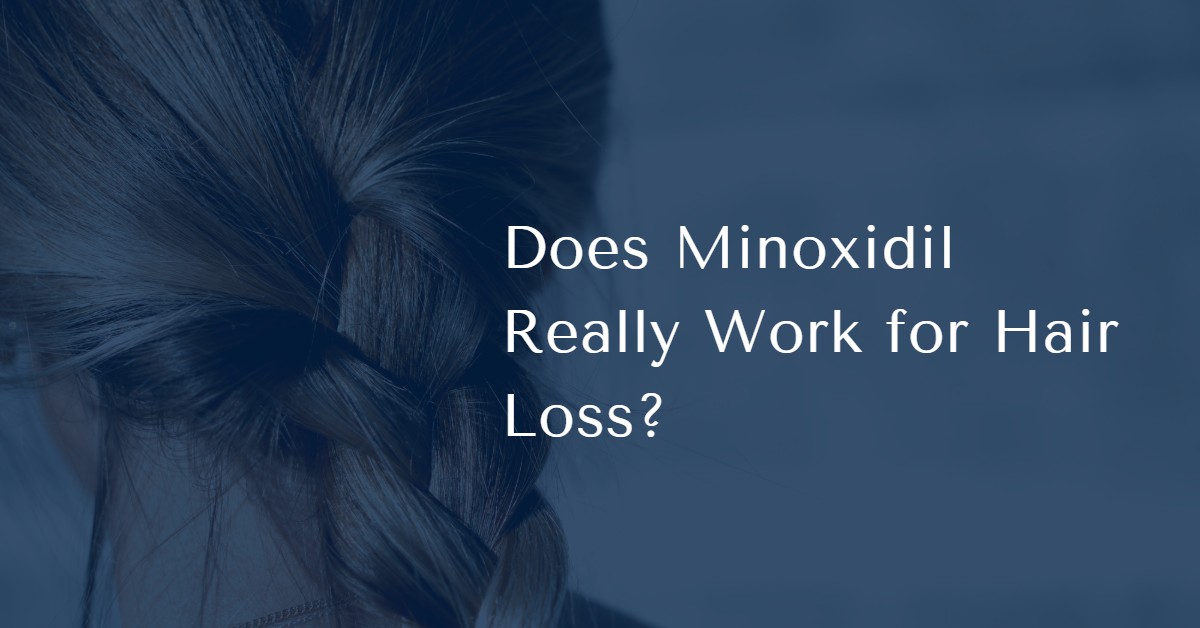Health & Fitness
Does Minoxidil Really Work for Hair Loss?
Minoxidil is beneficial in hair regrowth, there are several cautions. Minoxidil is only effective in persons with hereditary hair loss on the top and back of their heads.

What is Minoxidil? Are a solution and foam are used to promote hair growth. It is not recommended for males with frontal baldness or a receding hairline.
Is Minoxidil Effective?
Clinical trials demonstrate that Minoxidil is effective to a degree, but only for certain forms of baldness and only when used consistently. However, it will not work for everyone. If it works, you won’t be able to regrow all of your hair, and it could take up to four months to see results. To keep any regrowth, you’ll have to use Minoxidil indefinitely.
Minoxidil’s Mechanism of Action
Minoxidil is thought to be a vasodilator Minoxidil (the active ingredient) is considered to work by partially enlarging hair follicles and prolonging the hair development period, while the specific mechanism of action is uncertain. You’ll see more hair coverage on your scalp if you have more follicles in the growth phase.
Who gets the finest Minoxidil results?
Minoxidil is a topical medication administered to the scalp to promote hair growth and prevent hair loss caused by male and female pattern baldness. This is the most prevalent form of hair loss, and it is inherited.
Minoxidil is most effective in persons who have hereditary hair loss at the vertex of the scalp or women who have overall hair thinning on the top of the scalp. Minoxidil isn’t intended to treat a receding hairline or baldness in the front of the head.
Minoxidil has been demonstrated to be most beneficial in persons under the age of 40 who begin using it as soon as they notice hair loss. It won’t benefit folks who have already lost their hair.
If any of the following apply, don’t use Minoxidil
- You don’t have a family history of hair loss.
- Your hair starts to fall out in patches and is lost all of a sudden.
- You haven’t reached the age of eighteen.
- You have a red, itchy, inflamed, or painful scalp.
- Hair loss can be caused by hair products, chemicals, or hair styling techniques such as cornrowing.
Another illness, such as thyroid disease or alopecia areata, dietary inadequacies, scalp scarring, or drugs, such as chemotherapy, is causing your hair loss.
Consult your doctor before using Minoxidil if you have a heart condition.
Studies on Clinical Efficacy
Minoxidil has been found in clinical research to regenerate hair in certain persons efficiently. 40% of males experienced moderate to dense hair growth on the top of their heads in the big clinical investigation that led to the drug’s approval in 1987. In a one-year observational trial, 62% of the 984 males who used 5% minoxidil saw a decrease in hair loss. In terms of hair regeneration, 16 percent of participants said the medicine was “extremely effective,” 48 percent said it was “effective,” 21 percent said it was “moderately effective,” and 16% thought it was “ineffective.” The negative ramifications were limited.
Clinical trials on women were also conducted. In a double-blind study, 19 percent of women aged 18 to 45 who used Rogaine for eight months reported moderate hair regrowth, whereas 40% saw no change (compared to 7 percent and 33 percent for placebo, respectively).
Negative Effects
Minoxidil is thought to be safe. Minoxidil side effects are usually minor. Among the most common are:
- irritated scalp
- hair growth in the areas around your brow, for example
- alterations in the structure or color of the hair
Make sure you don’t get any Minoxidil in your eyes when applying it. If this happens, immediately rinse your eyes with plenty of cool tap water.
Minoxidil can cause more serious adverse effects, but they are uncommon. If you have any of the following symptoms, see your doctor straight away:
- weight gain that is abrupt and unexplained
- dizziness or faintness
- Swelling of the hands and feet
- chest discomfort
For the first few weeks after starting Minoxidil, you may notice an increase in hair loss as your hair follicles push out the old hair to create a place for new growth.
Conclusion
While Minoxidil is beneficial in hair regrowth, there are several cautions. Minoxidil is only effective in persons with hereditary hair loss on the top and back of their heads. Only approximately 60% of people in clinical tests had positive outcomes. So it’s possible it won’t work for you.

